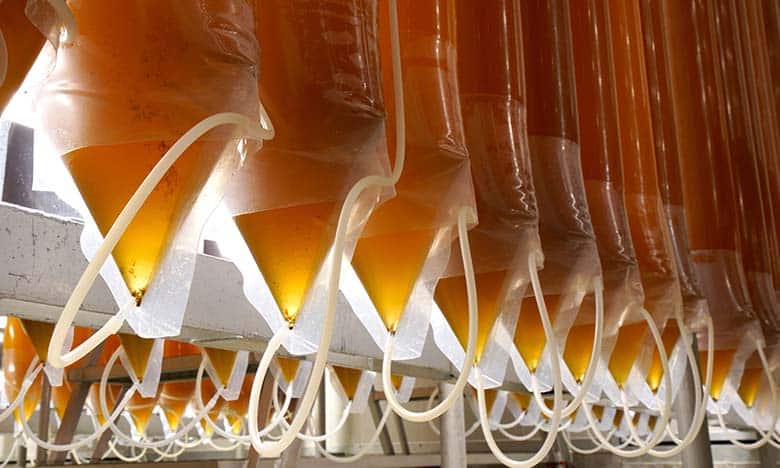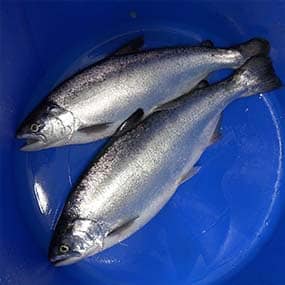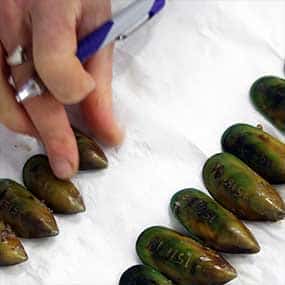Nutrition
We optimise aquatic nutrition for improved performance and quality.

Nutrition
We optimise aquatic nutrition for improved performance and quality.
The saying “you are what you eat” applies to aquatic animals too. From shellfish larvae to scampi and salmon, providing a balanced diet is essential for development and performance. To understand nutritional requirements, we develop and test new diets to enhance survival and performance. Nutrition is also about how and when to feed and we are learning how salmon respond to different feeding regimes. This knowledge helps build a thriving aquaculture industry as we provide optimised nutrition solutions tailored for each species.
Finfish
Our primary focus for finfish nutrition research and development is on king salmon. We work with a number of New Zealand salmon farmers and feed companies to develop optimised diets and feeding regimes. This research is improving our understanding of processes that influence king salmon’s feed conversion to support industry performance, profitability, and sustainability. Two important outputs include enhanced feeding practices and the development of an improved nutrient demand model. Farmers are using our results to help feed their salmon more efficiently.

Shellfish
Our researchers are experts in shellfish – from physiology to nutrition. Our multidisciplinary team of researchers adopt a holistic approach to enabling innovation-driven growth that maximises the profitability of New Zealand’s shellfish aquaculture industry.
A key component of this research and development is nutrition. Shellfish require a specific diet at early life stages for optimised performance, and Cawthron Aquaculture Park produces about 2000 litres of ‘gourmet’ microalgae shellfish feed each day using continuous and batch culture algae production systems as well as pond systems to feed juveniles and adults.
We also carry out research and development on the continuous production of fastidious microalgae species. For example, we have succeeded in the continuous culture of Chaetoceros calcitrans, a very small diatom that is an important diet component of many shellfish larvae. These production processes are equally applicable when growing algae for other purposes such as nutraceuticals or even pharmaceuticals.
